Neo Sora, Lia Ouyang Rusli, Shina Peng, Ariana King, Lulu Yao Gioiello
The title Happyend is not quite a spoiler for director Neo Sora’s debut feature-length film. Eight years in the making, Sora’s speculative script about the impacts of a surveillance state on youth in Japan turned out to mirror reality more closely than he could have expected.
Happyend is set in a near-future Japan that could realistically be the Japan of next week. This past July, the fringe right-wing party Sanseito, which partly inspired the film’s conservative government, won 14 new seats in Japan’s Upper House. Facial recognition technology, used in the film’s fictional school to track students, has already appeared in places like the Osaka Expo and airports across the globe. A happy ending, perhaps, for the security state.
At its core, Happyend is a coming-of-age story centered around a group of friends whose tight bond is beleaguered by the slackening pressure of real adult problems. The film’s main protagonists are childhood buds Kou and Yuta, who are forced to acknowledge their disparate circumstances and learn that even the closest of friendships can falter in the face of a moral reckoning. Beautiful cinematography and thoughtful writing are complemented by a lush score composed by Lia Ouyang Rusli and the natural chemistry of the actors comprising the friend group at the heart of the film to make Happyend an astounding debut.
FAR—NEAR editors Lulu Yao Gioiello and Ariana King spoke with Sora, Rusli, and actress Shina Peng (Ming) about the themes that inspired Happyend, which is scheduled for theatrical release in the U.S. on September 12.
This interview has been edited and condensed for length.
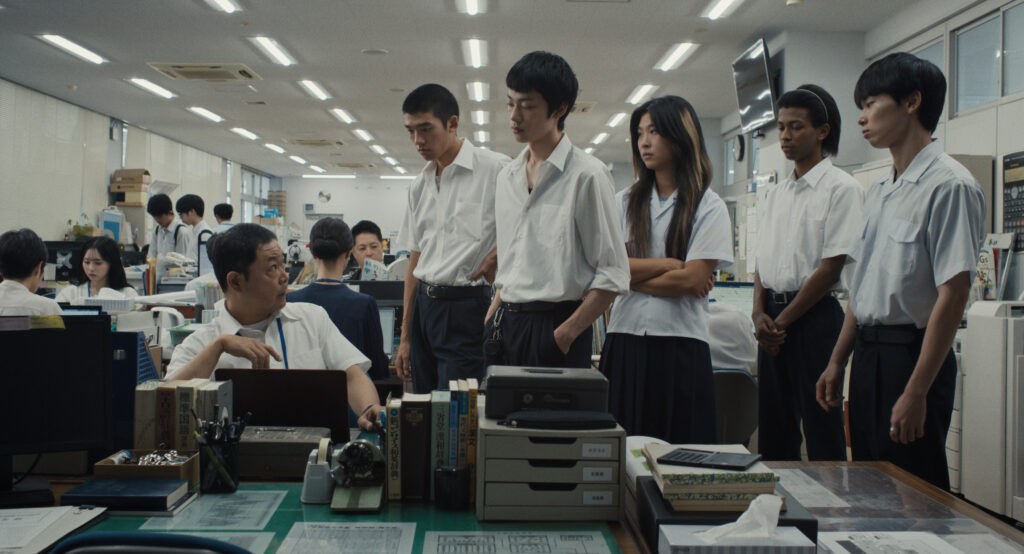
Lulu Yao Gioiello There’s something really unique about this interview, which is how long we’ve all known each other and stayed connected in different ways. Ariana and I have been friends since kindergarten and now work together on FAR—NEAR. Neo, we met you in high school. A few years later you reached out when you were looking for NY-based Japanese actors for your short film The Chicken. I suggested a good friend Junshin Soga, who I met while working at the restaurant En, and he ended up in your film. Then, when you were casting Happyend, you asked me if I knew any Taiwanese girls who spoke Japanese. It just so happened I had met Shina a week earlier, and she was perfect for that role.
Neo Sora Yeah Lulu, it’s hard to overstate just how important you’ve been to my whole filmmaking life thus far — a shadow master of my filmmaking career at this point. It’s pretty crazy. I totally remember hanging out in high school so it feels full circle.
Lulu Haha, I’m honored! I brought all this up because it leads to my first question: What made you want to center the film around friendship? And how did your real-life friendships shape the process of making it?
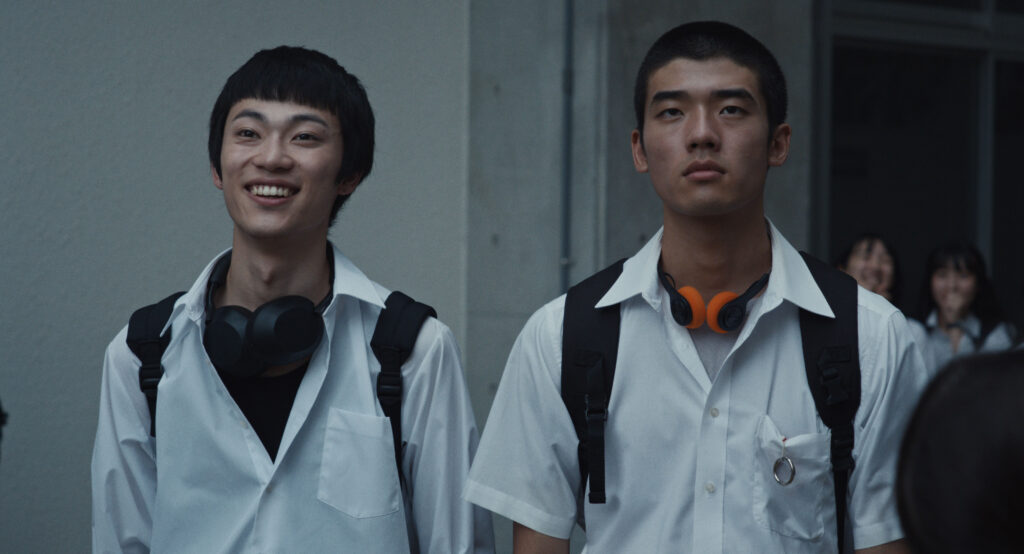
Neo At the core of the film is a friendship breakup due to political differences. That theme was important to me because growing up, friendship was everything. From 4th to 12th grade, I had a really close-knit group of friends, who I still hang out with to this day. They are as close as family. When you’re friends for that long, you witness each other’s growth, influence each other, and can’t really imagine life without them. That’s the value system I brought with me when I went to university. There as well, I ended up developing friendships which became as foundational as those high school friends.
The 2010s were a time of political movement around the world. My parents took me to protests when I was a child, but Fukushima was the first time I actively went to a protest because I believed in the cause. When I came back to the U.S. [after spending some time in Japan], there was Occupy Wall Street, Black Lives Matter and the Trump presidency. The 2010s really led into this chaotic, political world we are living in today. Being in university at that time, it was expected for everybody to joust intellectually and become more radicalized, especially at Wesleyan. My friends and I started to grow subtly in different ways. The more radical you get with a small group of people, the more you start to nitpick between specific ideas and tactics. You start to disagree.
After graduation I lost touch with a lot of friends from university, partly because we cut each other off for political differences. I experienced both sides — the sadness of being cut off and feeling betrayed by friends who I thought would fight along with me. That’s where the emotional core of the film came from. Nostalgia was also an important feeling. I miss those times of just fucking around. High school was a time of blissful ignorance for me.
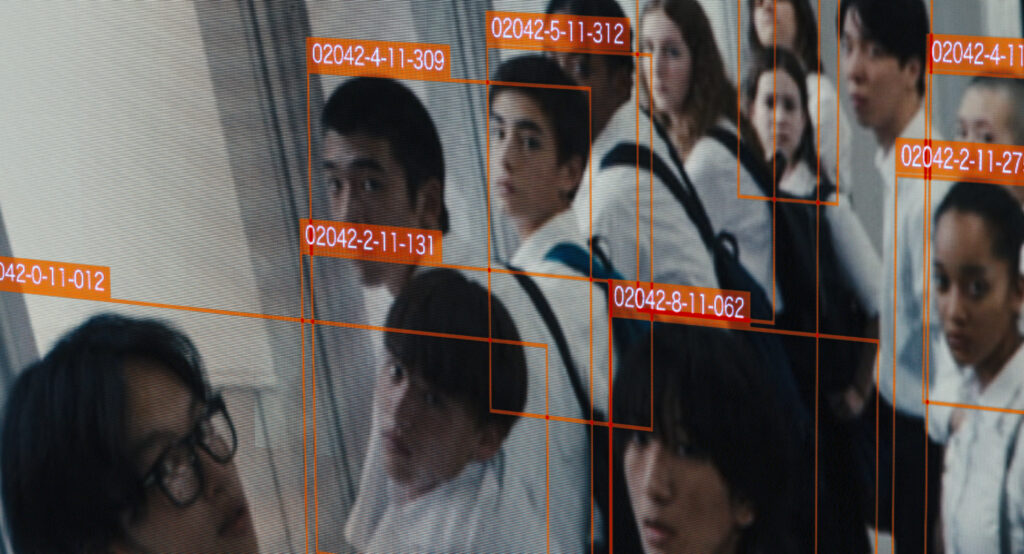
“Part of the film is imagining what might happen if another disaster comes and we still haven’t reckoned with these unresolved colonial resentments.”
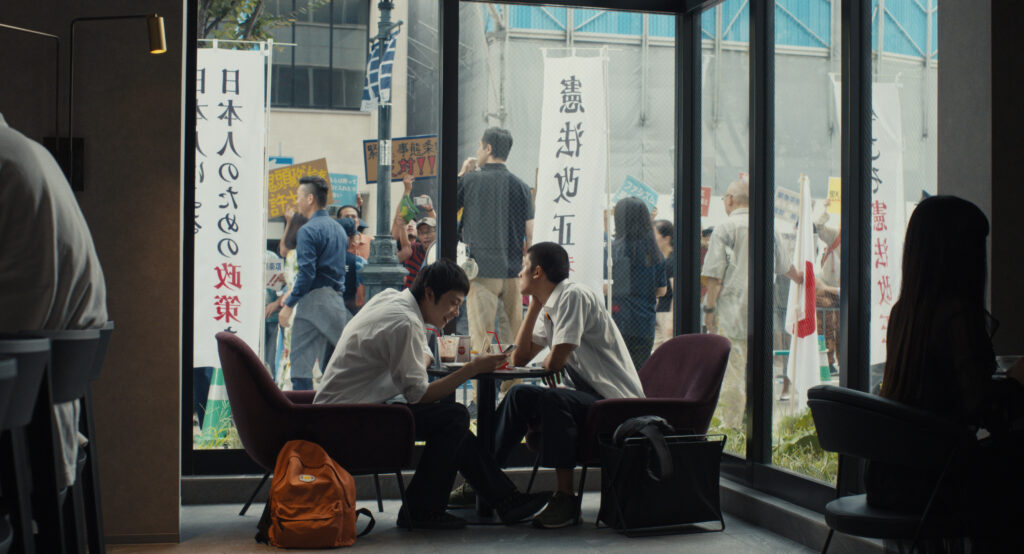
Ariana King The film is set in Japan, but you grew up and went to college in the U.S. When I was in college in Japan [2010–14], I felt like if the conversation started to veer into politics, people would get uncomfortable and change the topic. Do you think that this film is representative of a shift in the way Japan is facing controversial issues? Why did you decide to set the film there?
Neo Part of why I wanted to shoot in Japan was because I was attracted to the idea of making a seishun or furyō eiga [coming-of-age/delinquent film]. But things are definitely changing in Japan, especially with the far-right coming into power and the influence of the internet in the past five to ten years. People coming out of the movie have told me they could relate to the film — that they often aren’t able to talk to their friends back home anymore.
The other reason why I set the film in Japan was because as I was joining the anti-nuclear movement I came across the racial and colonial history of the great Kanto earthquake of 1923. Rumors spread that the earthquake and its aftermath was somehow the fault of foreigners. Japanese people massacred Korean, Chinese and Japanese minorities who couldn’t speak hyōjungo, the standard dialect.
This led me down a rabbit hole of learning about Japanese imperialism and colonialism. Around 2014, there were hate speech protests in Korean neighborhoods in Japan — right-wing groups shouting things like “Koreans are cockroaches” and “Die.” It was shocking. I started thinking: if another earthquake hits — and they’re always reminding us that another one is on the horizon—how can we be sure this kind of hate won’t resurface, especially when people like that are already active? Now, with [right-wing populist party] Sanseitō gaining legitimacy and historical revisionism on the rise, it’s even more alarming. After Fukushima, Twitter was filled with racist claims like “foreigners are poisoning the wells” [the infamous rumor that led to the 1923 massacres] as a way to provoke people. It’s a scary time. Part of the film is imagining what might happen if another disaster comes and we still haven’t reckoned with these unresolved colonial resentments. That, along with revisiting my high school memories, is why I set it in Japan.
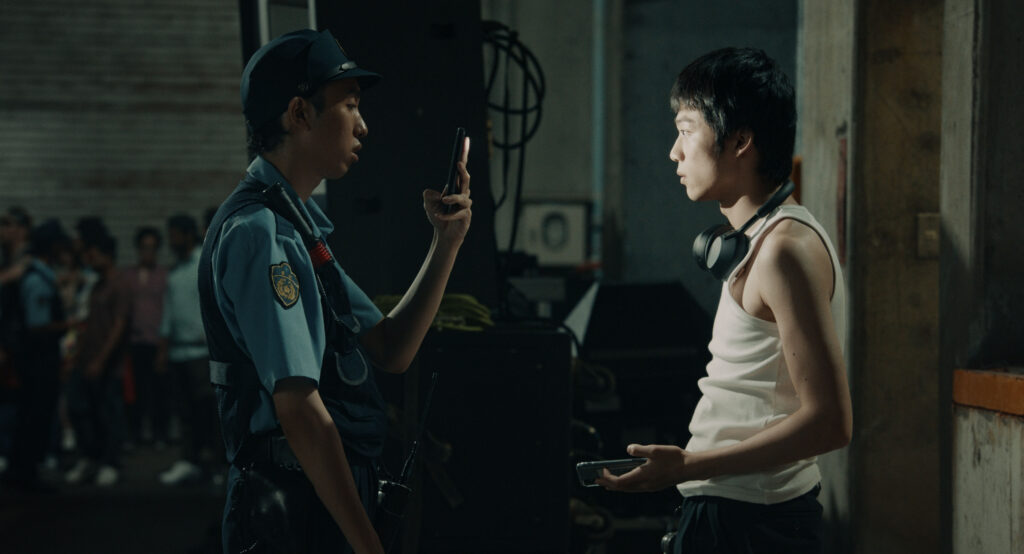
Lulu Lia, as the composer of the film’s score, what about the script stayed with you?
Lia Ouyang Rusli It was really smart. It touched on a lot of important political issues and I love teen friendships in films and think they’re hard to do well. And it involved techno music. It had all of the things that I really love in film and storytelling.
Lulu I love your score. It’s really beautiful and a little angsty. It set the stage for the world Neo was building in this near-future Japan. What were you trying to channel with the soundtrack? Can you speak a bit about the process?
Lia We had a lot of conversations about music. We love ambient and techno and the more we talked about it, the more we both resonated with a pure [score]. Something simple, with a melody, nothing too hip. We tried to tap into the childhood friendships and feelings of nostalgia. One of the main themes is a nostalgic piano piece that evokes the time where it’s just you and your friends.
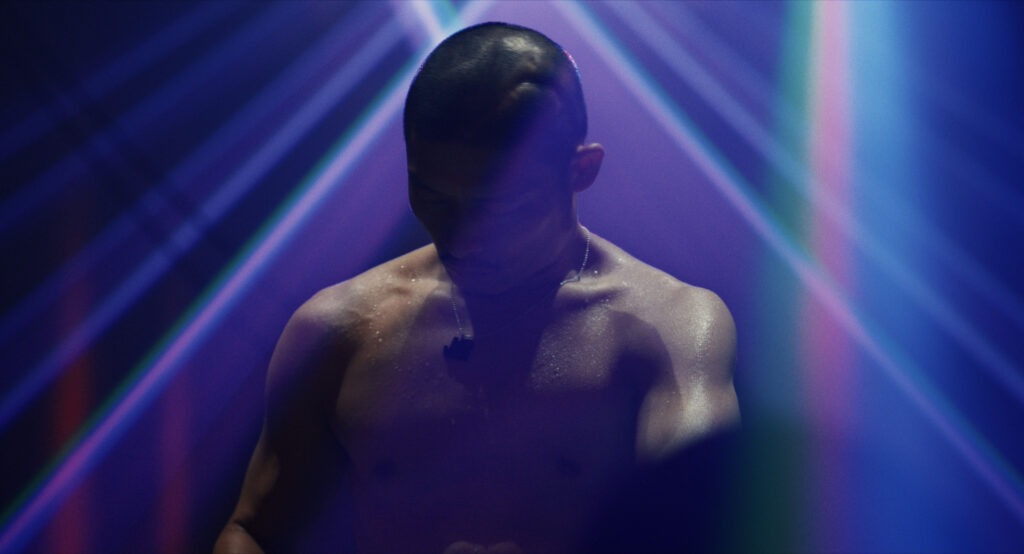
Neo There was a trend in film music to be as invisible as possible, blend into the soundscape. I never liked that. I’ve always gravitated towards scores where you hear the music and immediately can identify the movie, like Jaws or Star Wars or Akira. I think Lia’s score for Happyend is one of the best film scores of the past year — not just because it’s our film. I think it needs to be more recognized. Apparently audiences in Korea have been really into it, DJs have been incorporating it into their sets!
I wanted the movie to feel like it was a tale being told. We’re not describing reality, but the tale is capturing an aspect of reality. It’s like the feeling of “once upon a time.”
The storyteller narrates through music: Oh yes, this is a distant time where the kids were all right, their friendship was great. Then comes the track “World,” and suddenly there’s a shift — something darker is creeping in. The score gives you that perspective, guiding you through the emotional arc, like a narrator telling the story through sound.
Lia Neo has a really particular ear for music. So when we started, I came over to his apartment and would play on the piano and he would just tell me when he identified with something. “Oh, I really like that. What if we made the harmony a little more complicated here?” It was a really fun game and really helped us get in sync.
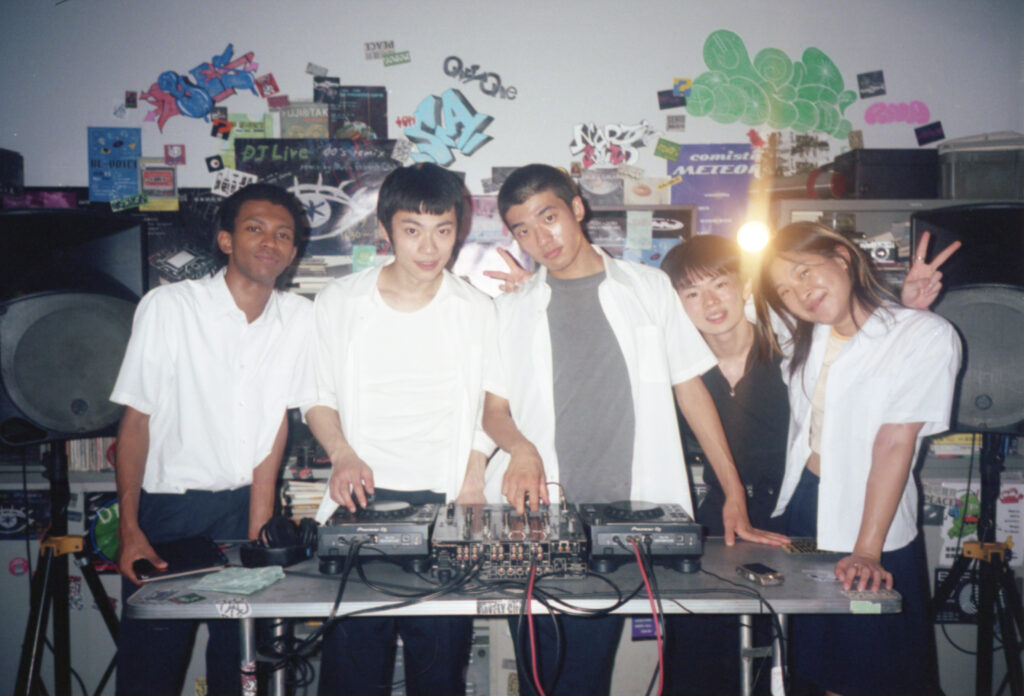
Behind the scenes captured by Shina Peng
Ariana You said that the music, the score, was really well received in Korea. Is the film being well received there too?
Neo The release in Korea was like seven times more of a hit than in Japan. It completely took me by surprise at how well received it was.
After Japan, the film was released in Hong Kong, and it seemed really successful, but then it went to Korea and then it was next-level. I think it’s related to how recently a country has experienced a popular movement. Hong Kong of course experienced their wave of protests in 2019; and then Korea as well. The timing was insane because last December, President Yoon Suk Yeol essentially tried to do the same thing our fictional prime minister did in our film, using an emergency decree to consolidate power. It was really inspiring for me to see all these people in Korea successfully come together to stop that. I’m not sure the population in Japan would be as successful, unfortunately.
I was reading some of the reviews in Korea, and one said, “This past winter, I was sitting in front of the president’s residential palace and somebody handed me kimbap. And so when I watched that scene at the end in the principal’s office, I cried because I remembered.”
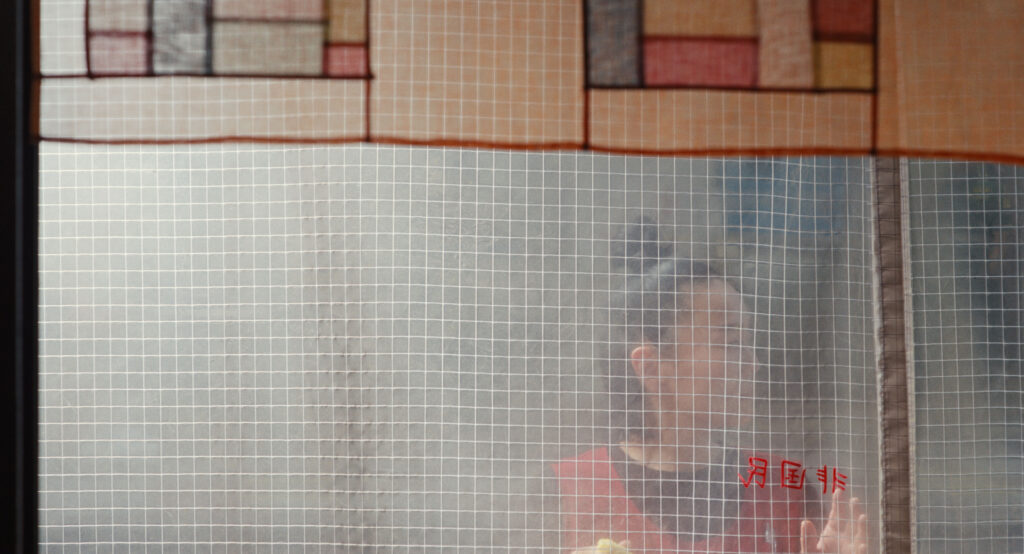
Ariana What was your awareness of Zainichi Korean issues growing up? I get the sense that more people are talking about Zainichi and other minority groups in Japan now, but was that something that you had always known about?
Neo My first encounter was through movies, watching Go and Blood and Bones. And then as a teen in Japan during summer vacation, I heard of incidents where people slashed the traditional Korean chima jeogori of women going to graduation or Korean school.
Besides that, the media often pushed propaganda through the North Korean kidnapping issue. It wasn’t until university, when I began engaging with Japan’s political history, that I started to understand the deeper colonial entanglements behind it.
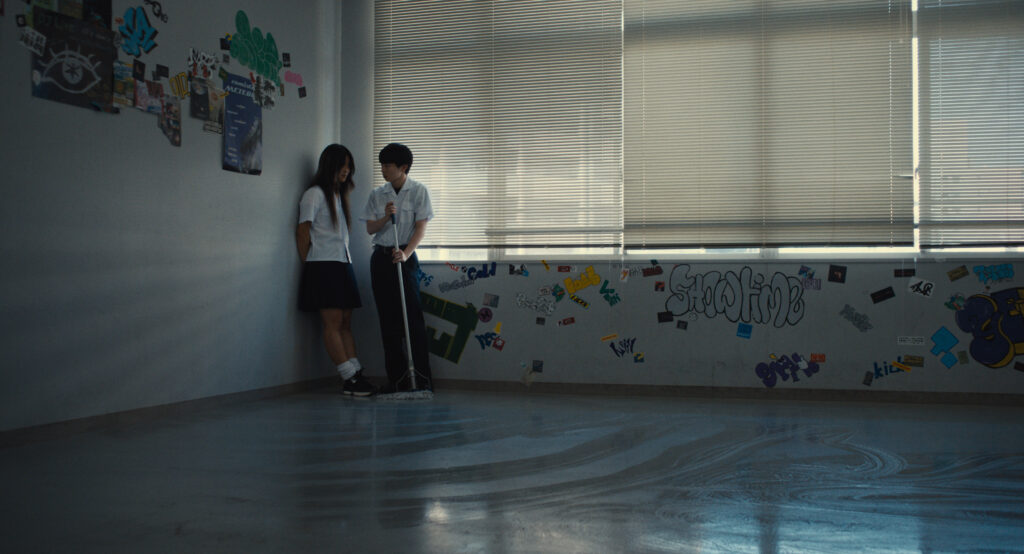
Lulu Shina and I are Taiwanese, and Japan colonized Taiwan for 50 years, but it’s something I didn’t learn about until I went to visit my family there. I also remember learning that while Taiwanese were forced to speak Japanese in school, Taiwan wasn’t treated as brutally by Japan as China and Korea were, because they wanted it to be their model colony.
Shina Peng Even though I grew up in Japan I lived in a “foreign bubble” going to international school. But I remember in many Taiwanese communities I knew, there was a strong desire to separate from Chinese identity. My mom, who is Taiwanese with roots going back to the 1800s, would always say things like, “Tell people you’re Taiwanese, not Chinese.” That distinction was important.
I remember seeing anti-Chinese graffiti around town. Things like “Fuck the Chinese” or “Get out of the country.” That messaging stuck with me. While developing Ming’s character I realized how being Taiwanese in Japan can sometimes give you a kind of “pass.” You’re not from mainland China so you’re treated differently. Ming, for example, isn’t overtly political. I think she reflects a person who’s able to fit in and get by without questioning things too deeply. And I get that — that was me, in some ways.
Looking back, especially now living in New York, I can see how those moments in high school were already shaped by history, colonialism and race, even if I didn’t fully understand it at the time. It’s only now that I can really name it.
Lulu In the West, people only have this pop culture reference to Japan, through anime, manga, etc. Or we learn about Hiroshima, Pearl Harbor, and maybe some people have friends or family based in Okinawa. But we don’t learn about how Japan was actually responsible for three to 10 million deaths in Asia during War II, which is kind of insane to think about. Most of the main characters in Happyend are culturally or ethnically related to these places that Japan colonized. Why did you make that choice?
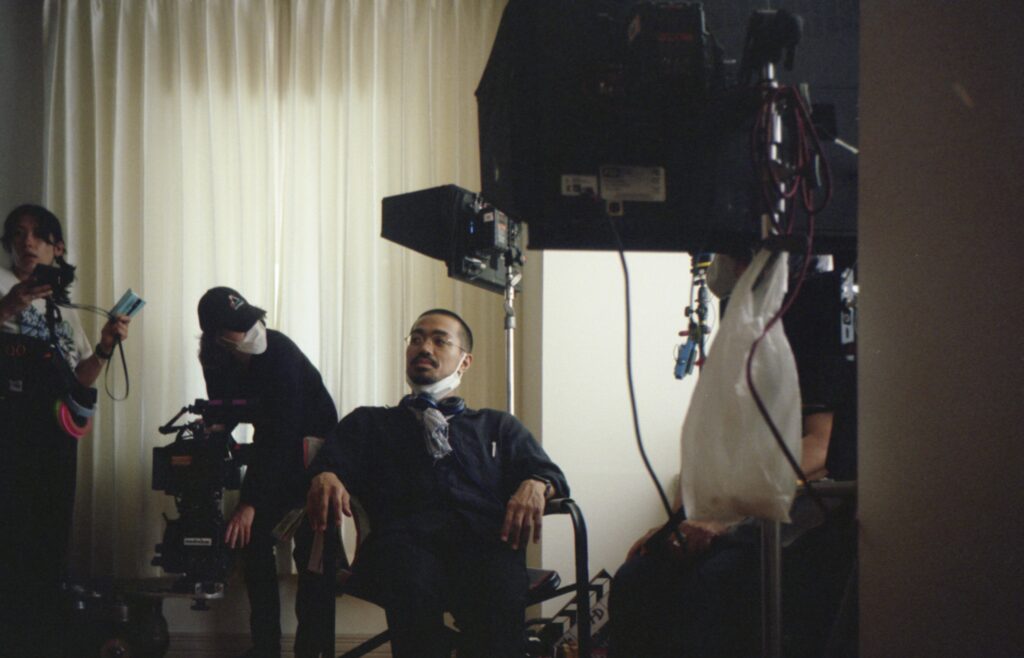
Neo Sora captured by Shina Peng
Neo I was thinking deeply about Japanese colonialism, so I wanted the characters to be directly connected to that history, even if they themselves aren’t consciously aware of it. As high school students, they wouldn’t necessarily recognize those layers. Yukito, who plays Kou, had just turned 19 when we shot the film. During casting, he told me he’d only recently learned he’s a quarter Korean and a quarter Taiwanese.
That kind of delayed awareness really resonated with me: once you start learning history, you begin to understand why certain communities exist in certain places. But when you’re just living your life, it often doesn’t register, or if it does, the reasons remain unclear; especially so in Japan, where they avoid teaching you this history.
At the same time, starting from a conceptual place carries the risk of writing characters who are just symbols or stand-ins for ideas, which I was very conscious to avoid. I don’t think that makes for compelling cinema. So while history was my starting point, the writing process involved a lot of work to flesh out who these characters really were — their backgrounds, personalities, and inner lives — so they could stand on their own as fully realized people.
I grew up with Japan’s victim narrative — how it’s the only country to have atomic bombs dropped, how it suffered under American occupation, etc. But when you dig deeper, Hiroshima was targeted partly because the Imperial Navy was based there. And for Koreans, August 15 isn’t just the end of the war, it’s Liberation Day. So while Japan pushes its victimhood, it often avoids reckoning with its role as an Imperial aggressor. The narrative of history becomes this political battleground, which plays out in daily life. But racism in Japan is different from how it is in America — it’s not as visible. It’s not immediately clear who is Korean, Taiwanese, or Japanese. It’s a combination of nationalism, xenophobia, where you were born and whether you’ve become accustomed to Japanese culture.
Ariana There’s a Korean historian [named Jie-hyun Lim] who coined this concept called “victimhood nationalism.” It refers to the idea that in the past our nationalism was based around propping up national heroes. At some point after the war, we started to build nationalism around historical victimhood — how the country has been wronged. You can see that at play in the U.S. and Korea too, but it’s fascinating how that sentiment takes hold in Japan.
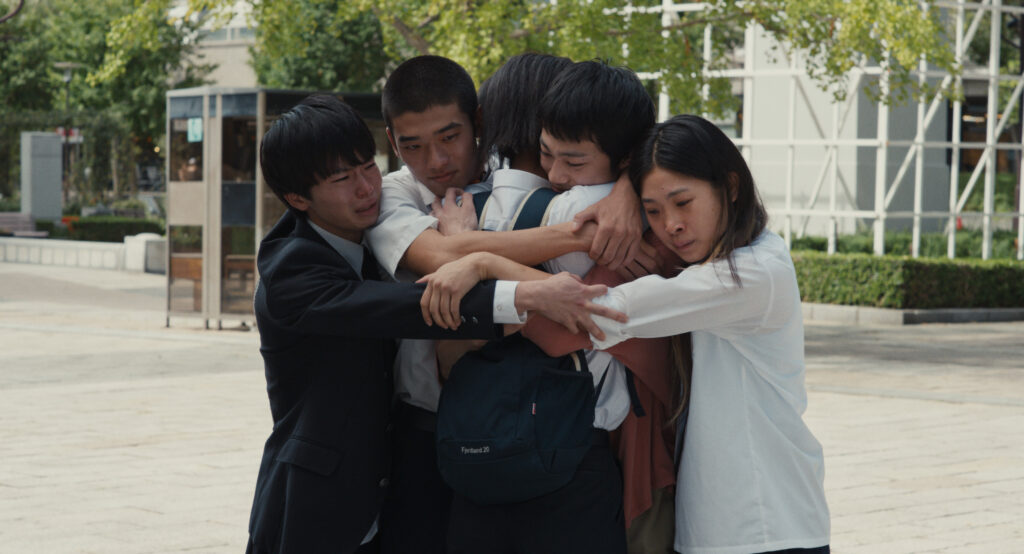
Neo Definitely. Japan never properly deimperialized, and now seeing its neighbors that it formerly colonized grow in economy and political power, resentment is building and it’s surfacing as the desire to return to its imperial past.
Coming back to the friendship though, what’s truly miraculous about the movie — and something without which it wouldn’t exist — is how close Shina and the rest of the main cast became. The actors genuinely became friends. As a director, especially working with people who had never acted before, my biggest concern was making sure their friendship felt real, like they’d known each other forever, from the very first shot. And I kept wondering, How do I make that happen? But honestly, I barely had to do anything. I just put them in the same room, and they naturally connected.
Shina The workshops were really helpful. Especially for the physicality, there was one where we workshopped how close we could get to someone without making them uncomfortable. That broke down a lot of walls. If your body is comfortable, then eventually everything else catches up. The guys would always want to do dinner and go out too. We’d wrap at 6 p.m., shower, meet up for dinner, read until midnight, and then start shooting the next morning as early as 5 a.m. We essentially spent the whole three months together.
Neo They would all gather in a tiny hotel room and read the scenes for the next day. I never asked them to do that. I’m sure you all wanted to do a good job, but you also seemed to just want to spend more time together.
Something that was extremely important for our film was that the whole production team had already been close for a long time. Three of my producers and I, we’ve all been friends for years. Aiko is my partner and has been a close friend for eight, maybe nine years. Albert and I have been friends since university, so that’s been about 12 years now. Eric I’ve known for over a decade. We were all friends going into this, and I think that’s why the vibe on set was so good. I truly believe that the relationships you build on set — between the actors, the crew — that energy carries onto the screen. In a way, we were capturing the actual development of the actors’ real-life friendship, while at the same time portraying a friendship that was already established in the story. And I think that’s why it feels so real.
Happyend hits U.S. theaters on September 12.
Visit Metrograph for more information.
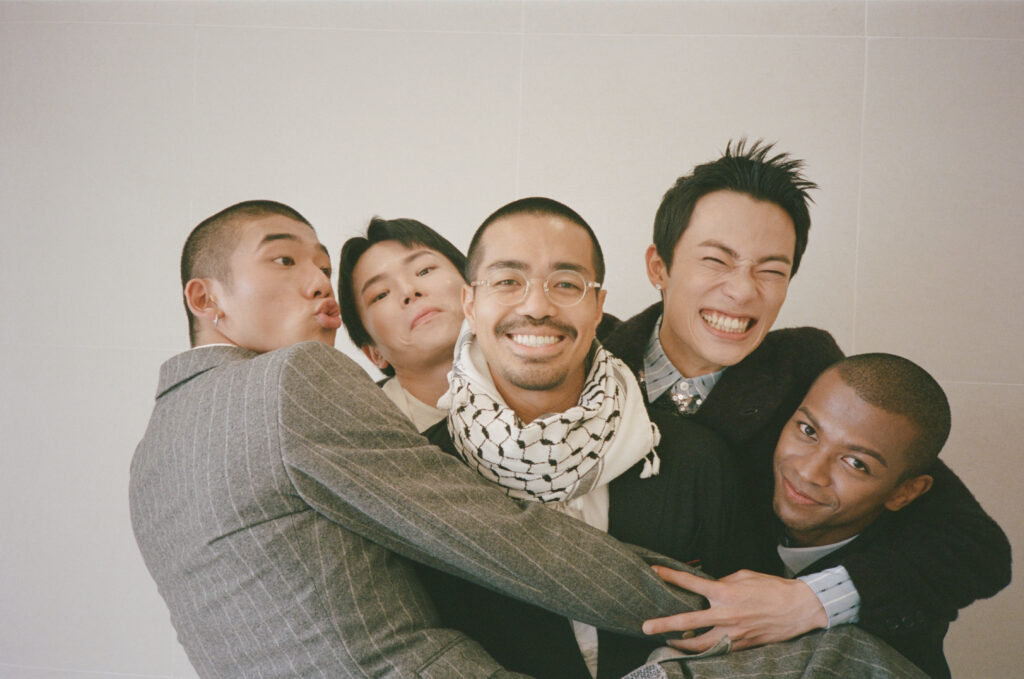
Behind the scenes captured by Shina Peng
Neo Sora
Lia Ouyang Rusli
Shina Peng
Lulu Yao Gioiello
Ariana King
Shina Peng

